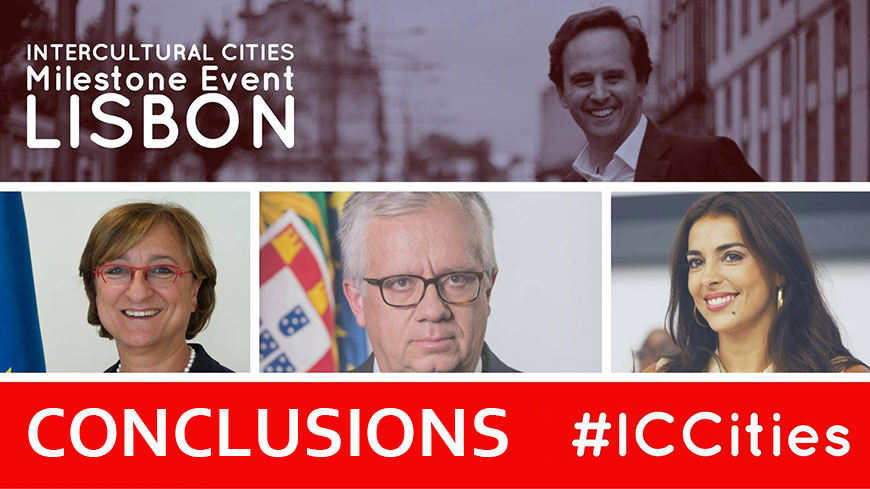From Oslo (Norway) to Limassol (Cyprus), from Paris (France) to Rijeka (Croatia), from Ballarat (Australia) to Montreal (Canada), from Mexico City (Mexico) to Hamamatsu (Japan), passing by Tanger (Morocco) and Haifa (Israel): in 10 Years (2007-2017) the Intercultural Cities programme developed from a pilot project for 11 cities into a major international coalition of 121 cities committed to making diversity a strength through inclusive integration policies.
Organised by the Intercultural Cities, in cooperation with the city of Lisbon and Portuguese authorities, the ICC milestone event brought together all member cities from five continents, to celebrate what has been a real success story, but also to take stock of achievements and develop new perspectives, approaches and partnerships in order to expand the intercultural integration policy model and better address the challenges and the needs of authorities and citizens. 270 people (121 men/149 women) of 31 nationalities, including Mayors, Deputy Mayors, State authorities, academics, intercultural experts and NGOs participated in the event.
Among the main challenges addressed, a major one is the need for national and local authorities to cooperate and co-act in the field of diversity management and migrant inclusion policies. This has been the goal of a restricted session convened on 28 November afternoon - under the form of a Policy Lab for inclusive integration - for Mayors and national authorities who committed to work systematically under a co-operation framework to improve the design and implementation of coherent inclusive integration policies, with the Council of Europe acting as a honest broker and facilitator of the process.
Moreover, participants discussed and agreed on an expanded ICC narrative and policy model for the decade ahead, and committed to strengthen work for policy innovation, in particular in the fields of participatory democracy, active urban citizenship, human rights and non-discrimination, LGBTi rights, anti-rumours, and inclusive integration. These issues were all recognised as useful mechanisms to counter inflammatory rhetoric and populism while promoting cohesion trust in public institutions, welfare and wellbeing.
Finally, participants will make a bold statement in favour of diversity and inclusive integration, and endorsed the “Lisbon Declaration” to spell out their renewed commitment.
The event was opened by Deputy Secretary General of the Council of Europe, Ms Gabriella Battaini-Dragoni, the Mayor of Lisbon Fernando Medina and the Minister of Home Affairs of Portugal, Eduardo Cabrita.




